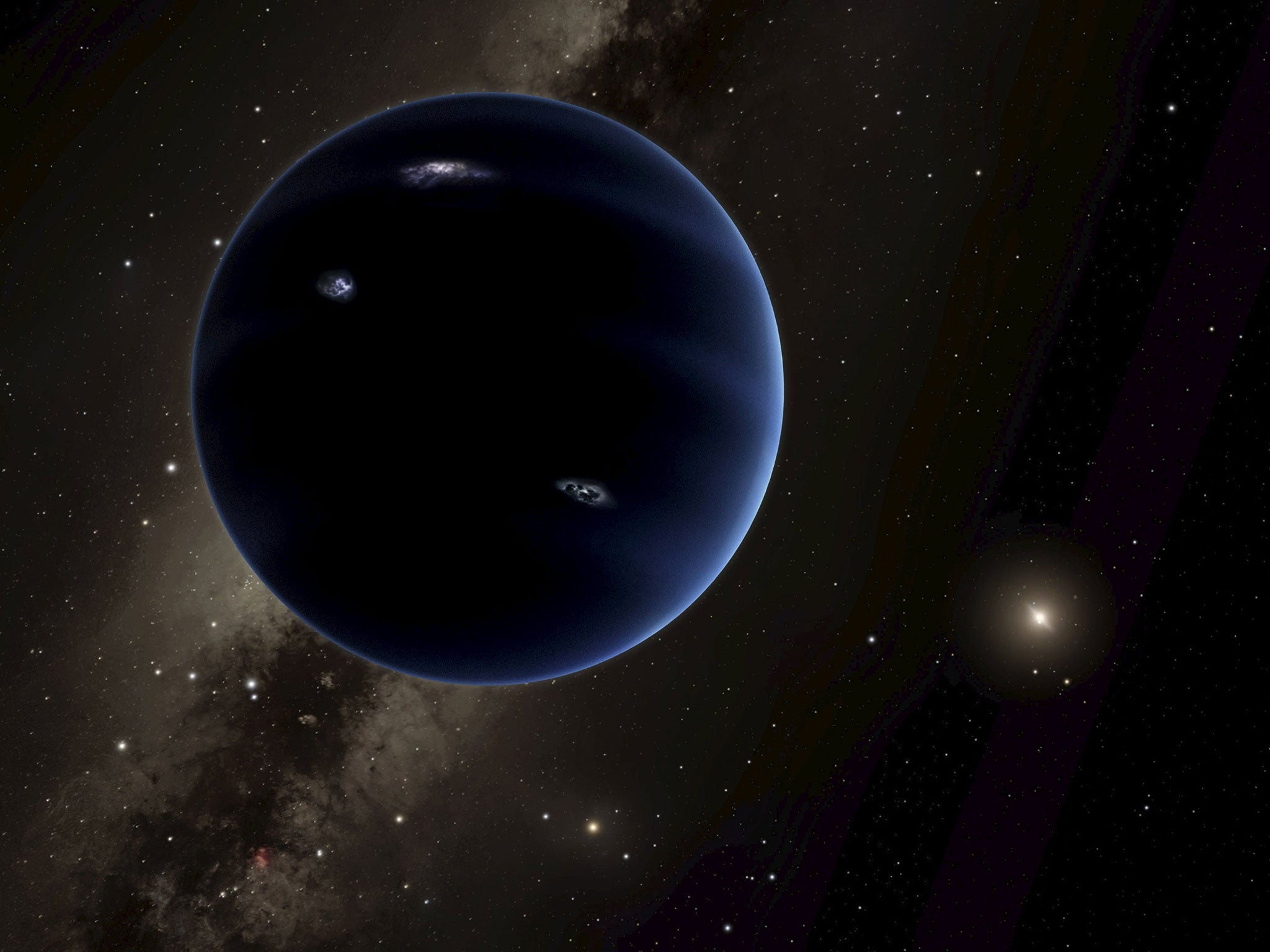Planet 9: Undiscovered world might hiding in our own solar system, new findings suggest
The huge, dark world has only ever been seen indirectly

Your support helps us to tell the story
From reproductive rights to climate change to Big Tech, The Independent is on the ground when the story is developing. Whether it's investigating the financials of Elon Musk's pro-Trump PAC or producing our latest documentary, 'The A Word', which shines a light on the American women fighting for reproductive rights, we know how important it is to parse out the facts from the messaging.
At such a critical moment in US history, we need reporters on the ground. Your donation allows us to keep sending journalists to speak to both sides of the story.
The Independent is trusted by Americans across the entire political spectrum. And unlike many other quality news outlets, we choose not to lock Americans out of our reporting and analysis with paywalls. We believe quality journalism should be available to everyone, paid for by those who can afford it.
Your support makes all the difference.A huge planet, ten times as big as Earth, might be hiding on the edge of our solar system.
For years, some have speculated that our planetary neighbourhood includes a strange and secret resident: Planet Nine. The world is too dark and far away for us to have seen, but is having unusual effects on our universe, experts claim.
Now a new study appears to strengthen that idea, suggesting that there are in fact nine planets in our solar system.
The new research is based on an asteroid called 2015 BP519, which orbits far away from us and the sun out at the edges of the solar system. That asteroid was found three years ago, and has been tracked ever since.
Now researchers say that tracking has shown something strange about the rock's orbit. It appears to be moving as if there is some large and unknown object acting upon it, they say.
While studying the planet, researchers noticed that it is slightly askew from the orbit of other planets including the Earth and most of the objects in the solar system.
To try and examine why, scientists ran a series of different simulations of the solar system. They found that the model made most sense if there was a large and distant planet that moved the asteroid – which is exactly what the Planet Nine hypothesis suggests there is.
As with the rest of the evidence for Planet Nine, the new research is based on suppositions. The effects of the potential Planet Nine have only ever been seen indirectly, by observing the movement of objects that would be affected by it.
If it does exist, it is almost certainly too dark to actually see. As such, even knowing that it exists will make it very difficult to actually spot or to study – though scientists hope that steadily pinning down its actual position could allow it to be observed with telescopes.
Join our commenting forum
Join thought-provoking conversations, follow other Independent readers and see their replies
Comments